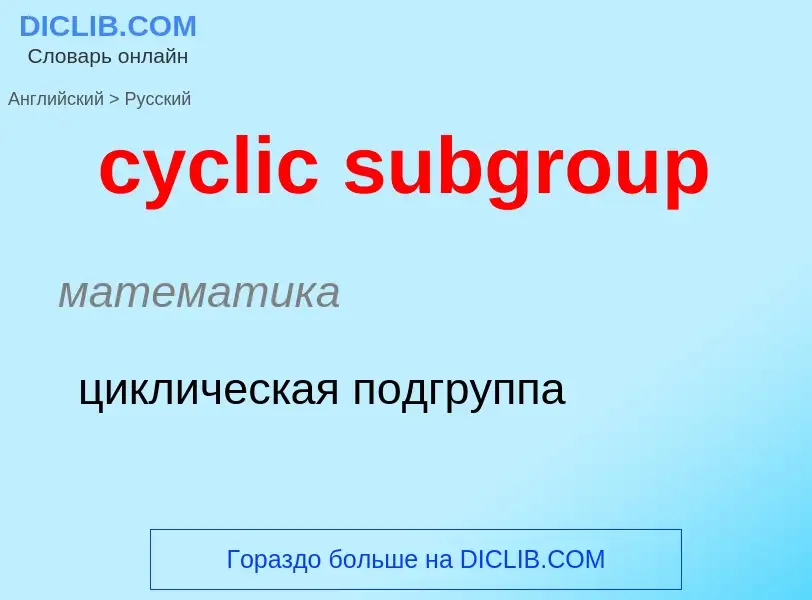Traducción y análisis de palabras por inteligencia artificial ChatGPT
En esta página puede obtener un análisis detallado de una palabra o frase, producido utilizando la mejor tecnología de inteligencia artificial hasta la fecha:
- cómo se usa la palabra
- frecuencia de uso
- se utiliza con más frecuencia en el habla oral o escrita
- opciones de traducción
- ejemplos de uso (varias frases con traducción)
- etimología
cyclic subgroup - traducción al ruso
математика
циклическая подгруппа
математика
образующая (образующий элемент) группы
математика
циклический порядок
Wikipedia
In abstract algebra, a generating set of a group is a subset of the group set such that every element of the group can be expressed as a combination (under the group operation) of finitely many elements of the subset and their inverses.
In other words, if S is a subset of a group G, then ⟨S⟩, the subgroup generated by S, is the smallest subgroup of G containing every element of S, which is equal to the intersection over all subgroups containing the elements of S; equivalently, ⟨S⟩ is the subgroup of all elements of G that can be expressed as the finite product of elements in S and their inverses. (Note that inverses are only needed if the group is infinite; in a finite group, the inverse of an element can be expressed as a power of that element.)
If G = ⟨S⟩, then we say that S generates G, and the elements in S are called generators or group generators. If S is the empty set, then ⟨S⟩ is the trivial group {e}, since we consider the empty product to be the identity.
When there is only a single element x in S, ⟨S⟩ is usually written as ⟨x⟩. In this case, ⟨x⟩ is the cyclic subgroup of the powers of x, a cyclic group, and we say this group is generated by x. Equivalent to saying an element x generates a group is saying that ⟨x⟩ equals the entire group G. For finite groups, it is also equivalent to saying that x has order |G|.
A group may need an infinite number of generators. For example the additive group of rational numbers Q is not finitely generated. It is generated by the inverses of all the integers, but any finite number of these generators can be removed from the generating set without it ceasing to be a generating set. In a case like this, all the elements in a generating set are nevertheless "non-generating elements", as are in fact all the elements of the whole group − see #Frattini subgroup below.
If G is a topological group then a subset S of G is called a set of topological generators if ⟨S⟩ is dense in G, i.e. the closure of ⟨S⟩ is the whole group G.

